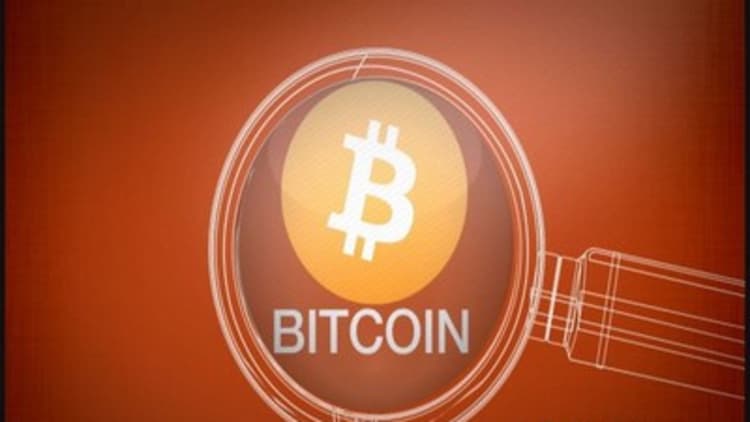


There's been a lot written about the death of bitcoin of late.
The digital currency has either failed, or is on the verge of collapse, according to op-eds and quotes in The New York Times, The Washington Post, The Week, The Guardian, Fortune and more. All of these articles hinged on the decision of an influential developer in the bitcoin community to leave the space behind — a move he announced with a blog post.
Despite the technical-sounding nature of those pronouncements, the reasons why former Google programmer Mike Hearn decided bitcoin had "failed" are a complicated story of competing business interests and philosophical considerations that some contend have been blown out of proportion.
"I'm not concerned in the slightest," said Barry Silbert, founder and CEO of Digital Currency Group — a firm that oversees 62 companies in the virtual currency and associated technologies space. "In the short history of bitcoin it has been declared dead 90 times ... and every week there's something new that leads certain people to believe that bitcoin is failing or failed, and in my experience so far, everything that doesn't kill bitcoin makes it stronger."
In his post entitled "The resolution of the Bitcoin experiment," Hearn focuses on the decision-making process around bitcoin's so-called block size debate — the ongoing disagreement within the community about how to store transaction data.
The question is how to best structure bitcoin's underlying blockchain (composed of sequential "blocks" of information). The current maximum size of 1 megabyte per block only allows about seven transactions per second, and some in the community say that's too slow for bitcoin's continued growth.
The debate is as much philosophical as it is technical: Some are seemingly content for bitcoin to act like an investable commodity — not necessitating quick transactions — while others want it to compete with the likes of Visa as an international transaction network. But no matter where they fall in the debate, most members of the community say the media's coverage distorts the seriousness of the disagreement.
"It's been blown way out of proportion," Silbert said. "I don't think this is going to be a permanent stalemate, but even if it were, there's not an expiration date for bitcoin."
If bitcoin traffic continues to grow without a solution, experts say, then transaction fees would likely rise along with increasingly unpredictable payment settlement times. But that's unlikely to be a permanent state of affairs, according to Pete Rizzo, editor of digital currency-focused CoinDesk, who said the community agrees broadly that the network needs to be scaled.

Just how that occurs, however, remains up for debate. Some proposals seek to skirt the issue of block size entirely by increasing transaction capacity in other ways, and others are seeking to promote a new version of bitcoin that hasn't been approved by the open source protocol's longtime core developers.
But Hearn's complaints were about more than just the merits of proposals for bitcoin's data storage process. He objected to the way that the core developers required "consensus" on every decision, and insinuated that some of them were intentionally stymieing the discussion.
Wary of increased media attention, in part brought about by Hearn, some of the businesses in the bitcoin space have come out in support of a proposal that may attempt to circumvent the core developers. This, in turn, is creating divisions in the community that threaten its growth (although probably not its survival).
"The media has certainly created the perception that bitcoin is stalling or has failed, and that perception was created because a lot of the reporting was based on the claims of one developer," Rizzo said. "That has put political pressure on the industry, given them a problem that is not technical, but purely political."
For his part, SIlbert — who is one of the biggest players in the space — said he is declining to take sides, but expects that the community will come to a workable solution.
And while political considerations may rile up the community, it's not immediately obvious that they will lead to the failure of the entire network. In fact, while bitcoin's price saw a big one-day drop after Hearn's exit from about $430 to less than $360, the price has largely recovered to nearly $420.
Daily transactions, number of users, merchant acceptances and venture capital investments have also all hit record highs since the block size debate began, according to Silbert. And while financial professionals outside of the bitcoin community have noticed recent news reports about its supposed failure, he said, those potential investors "are becoming a bit numb to both positive and negative headlines" — a potential sign of maturity in the space.
In fact, when interviewed via email in August, Hearn told CNBC the bitcoin network would continue to function no matter how the block size debate was decided — but its growth could become stalled.
"Well, Bitcoin will still exist no matter what happens. But obviously if there's no chance of growth and the community decides to follow the Bitcoin Core developers (without even knowing who exactly is in that group), then a whole lot of other developers and entrepreneurs will leave," Hearn said. "Because you can't build a successful business on an infrastructure with no chances of growth."
But even if the current debates, and Hearn's exit, are not bitcoin's death knell, that doesn't mean the digital currency is destined for long-term success.
"I still maintain that, from the price perspective, bitcoin has a binary outcome: It is either going to zero or it's going much higher," Silbert said. "Discussions and debates are just a healthy part of the process."



